After gastric sleeve surgery there are a few types of medicines you should avoid. Most of these are not “avoid forever” kind of medicines. You just want to avoid them for the short time after surgery.
Article Highlights
- Avoid taking aspirin or aspirin-containing medications for one week following gastric sleeve surgery.
- Avoid non-steroidal anti-inflammatory drugs for one month after surgery.
- Avoid any medications that increase your risk of deep vein thrombosis (DVT) after surgery.
- Avoid smoking estrogen-containing medications.
*always consult your medical professional before making any medication changes. This is intended for educational purposes only, not a substitute for proper medical care
Introduction
Weight loss surgery is a great option for patients struggling to lose weight through traditional means. Gastric sleeve, a form of bariatric surgery, is a well-known and frequently performed surgery to support patients in achieving long-term weight loss and improving health outcomes.
As with any surgery, there are side effects and post-surgical guidelines to keep in mind to stay healthy and safe after surgery. It is important to understand what medications to avoid after gastric sleeve surgery to preserve the effectiveness of surgery and maintain weight loss long-term.
Since there are a large variety of medications you may be taking, it is important to understand how they can affect the gastrointestinal tract. Knowing what medications you can take and what medications to avoid after gastric sleeve surgery is essential.
Gastric sleeve surgery: An overview
Gastric sleeve surgery is a safe and effective procedure that supports weight loss and improves various chronic health conditions. It falls under the umbrella of bariatric procedures, similar to gastric bypass in that it is proven to help patients reduce chronic disease and lose weight quickly.
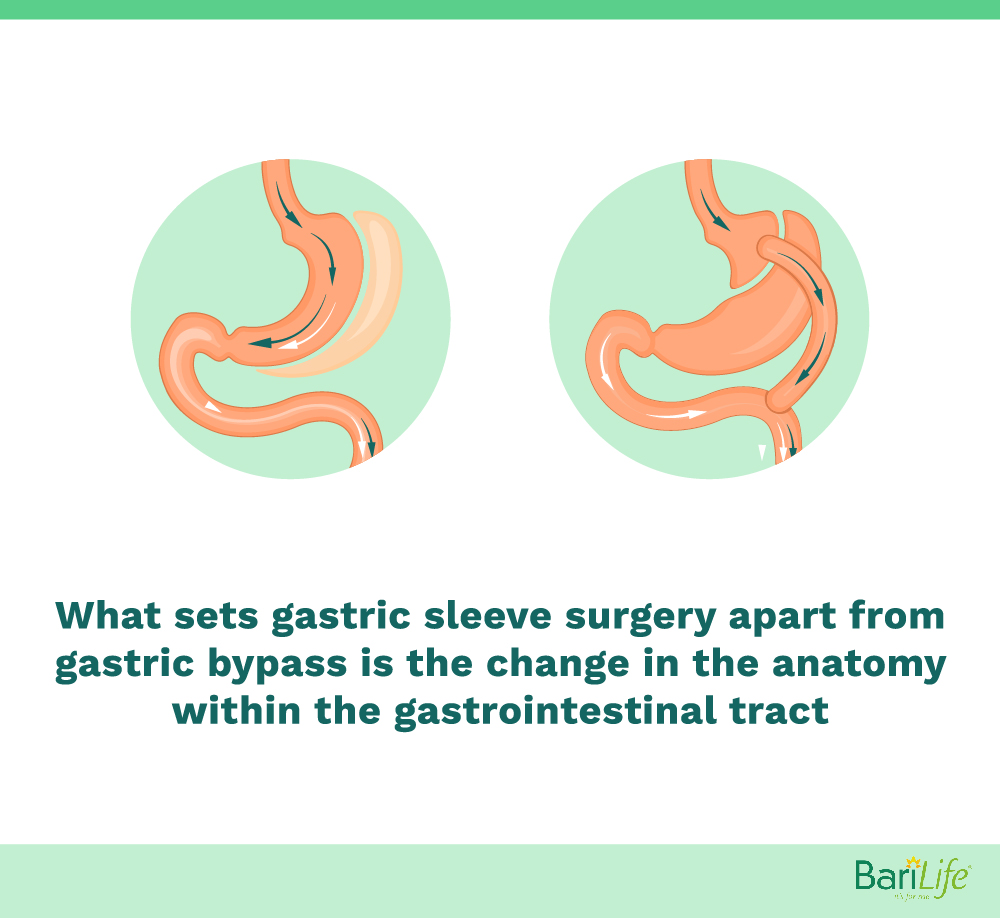
What sets gastric sleeve surgery apart from gastric bypass is the change in anatomy within the gastrointestinal tract. Gastric sleeve surgery is a laparoscopic procedure where small incisions are made on the abdomen and most of the stomach is removed.
After gastric sleeve, the stomach is 20% the size it was before surgery and takes on a sleeve-like appearance. Since a large portion of the stomach is removed, the stomach can’t hold as much food as before. This causes the feeling of fullness to set in quicker and last longer.
Because of the change in the stomach’s anatomy, absorption within the stomach also changes. With the decreased stomach volume, the stomach empties itself faster. This alters how medications move through the gastrointestinal tract after surgery.
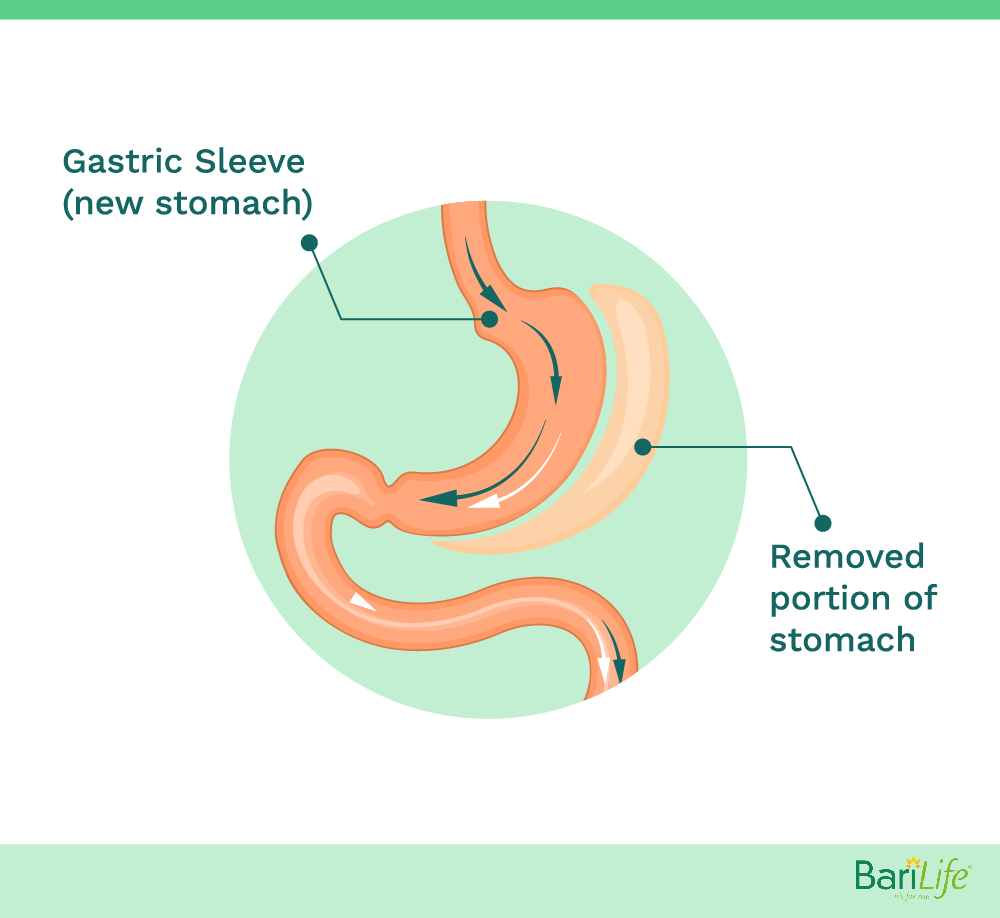
Medications to avoid after gastric sleeve surgery
Because of the change in the size of the stomach, there are some medications to avoid after gastric sleeve surgery to prevent tissue irritation. While gastric sleeve patients are more likely to take medications normally after surgery than other bariatric procedures, it’s still important to know what medications to avoid after gastric sleeve surgery.
Here are some general guidelines to follow:
Avoid taking aspirin or aspirin-containing medications for one week following gastric sleeve surgery
These can include:
- Bayer Aspirin
- Alka-Seltzer
- Excedrin
- Ecotrin
Avoiding these medications prevents any tissue irritation within the gastrointestinal tract.
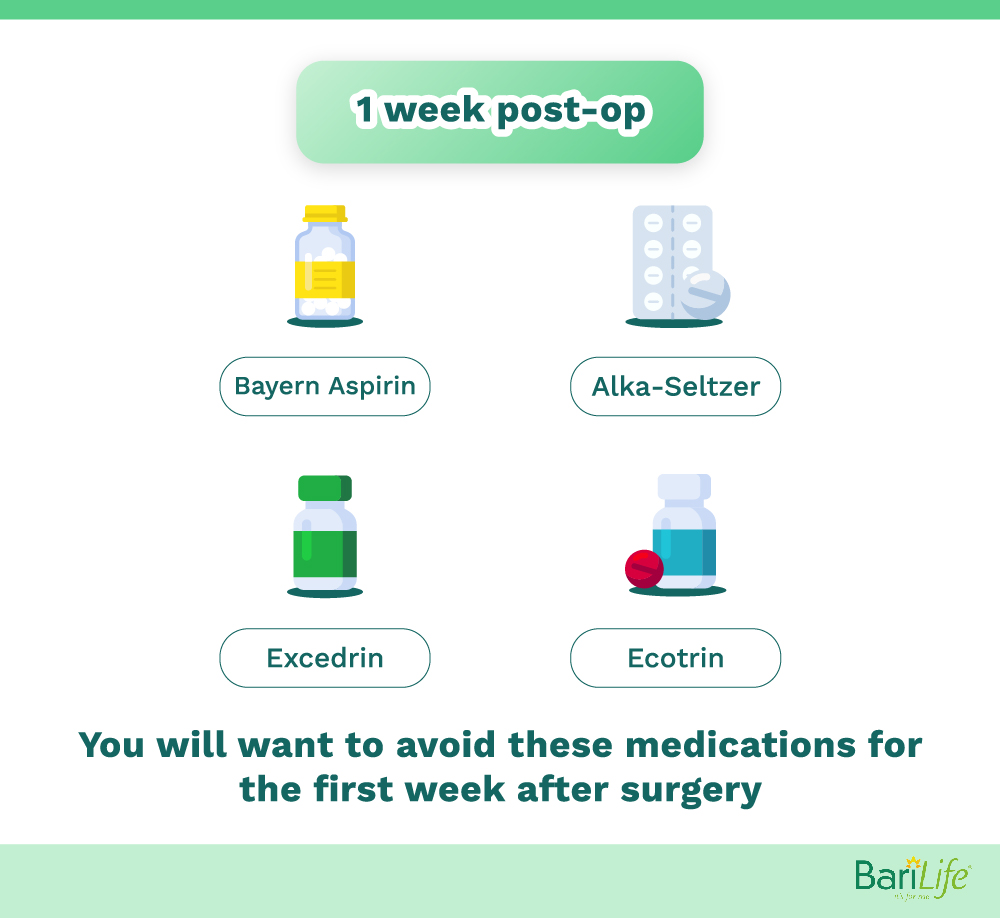
Avoid non-steroidal anti-inflammatory drugs (NSAIDs) for one month after surgery
Because of the change in stomach size with gastric sleeve surgery, Columbia University recommends that all NSAIDs should be avoided until after the one-month post-operative phase.
NSAIDs include:
- Motrin
- Advil
- Aleve
- Naproxen
- Ibuprofen
- Celebrex
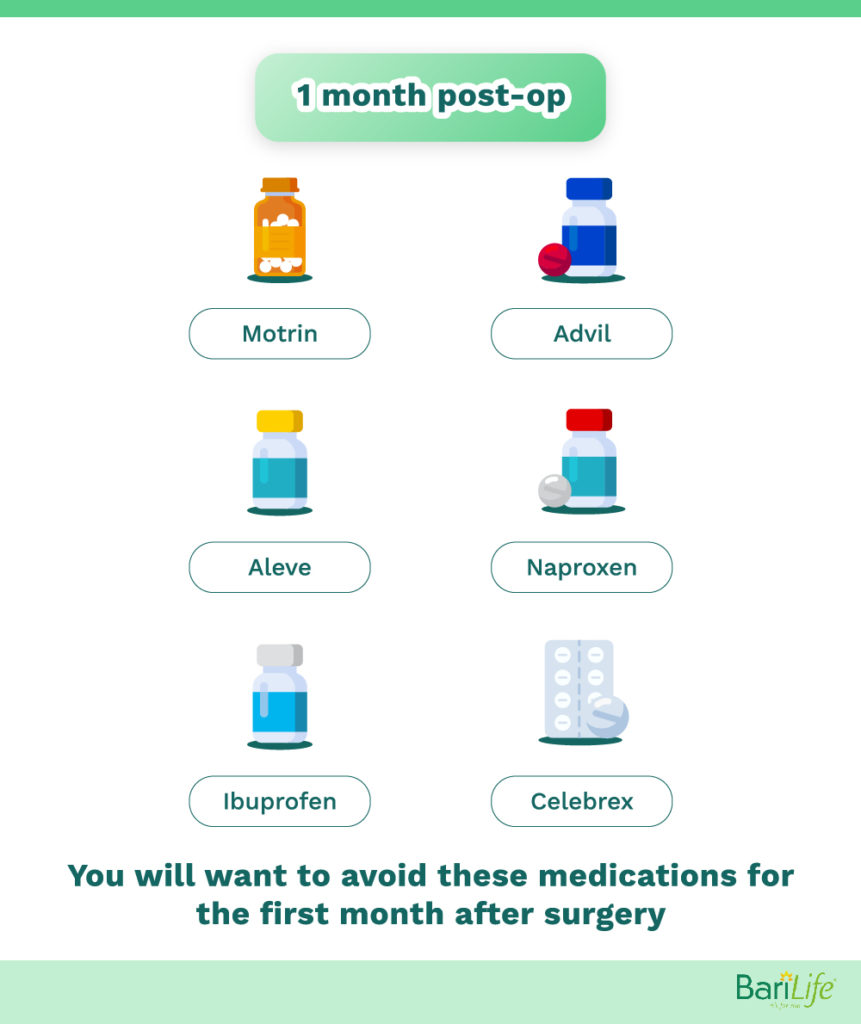
Instead of taking NSAIDs, Tylenol is a recommended alternative for pain relief.
Avoid any medications that increase your risk of deep vein thrombosis (DVT) after surgery
After surgery, you are at a higher risk of developing deep vein thrombosis or DVT.
DVT is a condition where blood clots form in the veins away from the heart, generally in the legs. If a formed blood clot dislodges, the clot may travel up to the lungs and cause a pulmonary embolism.
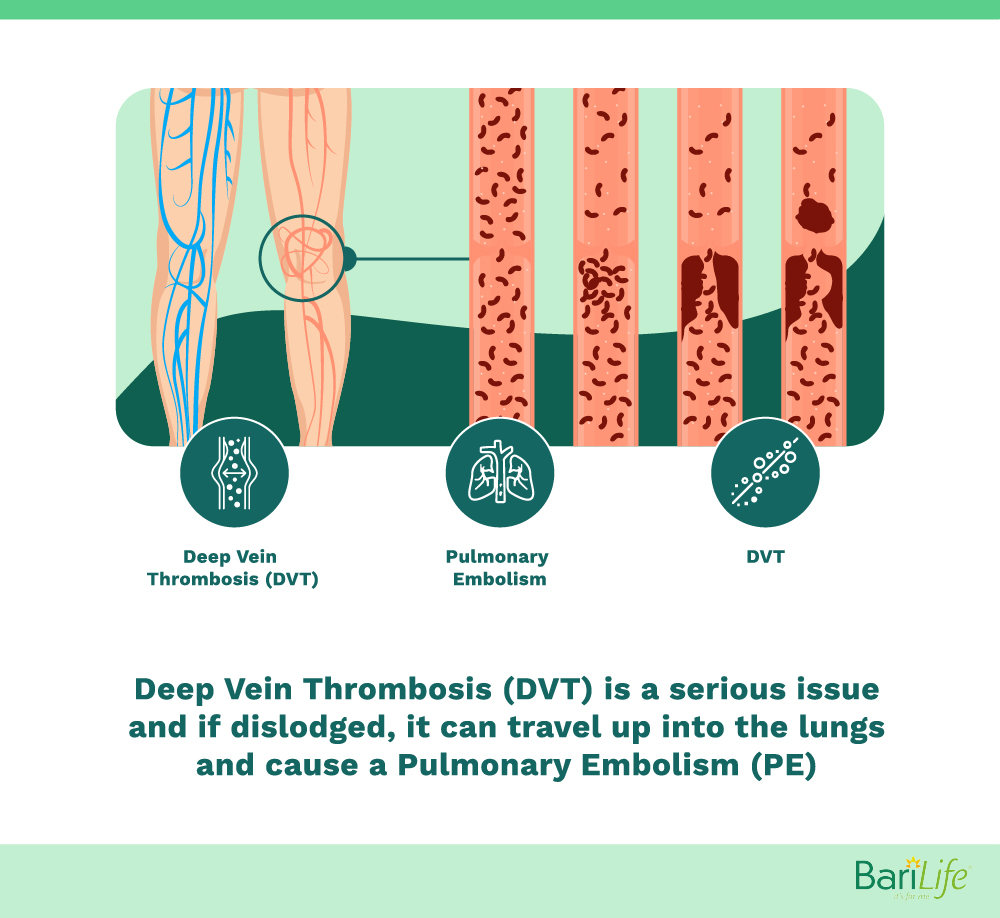
Some medications or irritants that can further increase your risk of developing DVT include smoking or nicotine use and estrogen-containing medications. Talk with your doctor about how to prevent DVTs so you know what medications to avoid after gastric sleeve surgery.
Crush medications for at least two weeks
After surgery, you will be placed on a full liquid diet for at least two weeks. During this time, you should only take crushed or liquid medications to support your post-operative healing.
While most medications can be crushed, extended or delayed release medications cannot. Talk with your surgeon or primary care provider to discuss alternative medication options if necessary.
While gastric sleeve surgery does not affect absorption as much as gastric bypass or other bariatric surgeries, the stomach lining can still become irritated with some medications. Make sure to follow the above recommendations after surgery and monitor the reintroduction of certain medications after surgery to see how your body reacts.
Specific circumstances can dictate what medications you should or should not take. Talk with your doctor about what is appropriate for you after gastric sleeve surgery.
What medications can I take after gastric sleeve surgery?
While there are specific medications to avoid after gastric sleeve surgery, it’s also essential to know what medications you can take after surgery.
Since non-steroidal anti-inflammatory medications are not recommended for at least one month after surgery, Tylenol/acetaminophen can be taken for pain relief. Tylenol doesn’t carry the risk of irritating the gastric mucosa and potentially causing a stomach ulcer as NSAIDs do.
After surgery, you should resume your regular medications for other health conditions at your doctor’s discretion. Check-in with your primary care doctor after surgery to make sure you are taking the correct dose, as you may need to adjust the dose or timing of some of your normal medications to accommodate your changing health due to weight loss.
Diabetes, heart, or blood pressure medications may need to be reduced if your health conditions improve with the weight loss associated with gastric sleeve surgery. Work closely with your primary care doctor to establish a medication regimen that supports you.
Recommended supplements after gastric sleeve surgery
While some medications are not recommended after gastric sleeve surgery, there are several supplements that are highly encouraged. Since patients who undergo bariatric surgery are at a high risk of nutrient deficiencies, supplementation is essential.
It is recommended that gastric sleeve patients take a multivitamin with 100% of the recommended daily dose of vitamins. In addition, a calcium supplement should also be included daily.
Because of the significant decrease in stomach size, you will not be able to hold as much food as before and nutrients will be lacking. This is an expected outcome after bariatric surgery, which is why lifelong supplementation is highly encouraged.
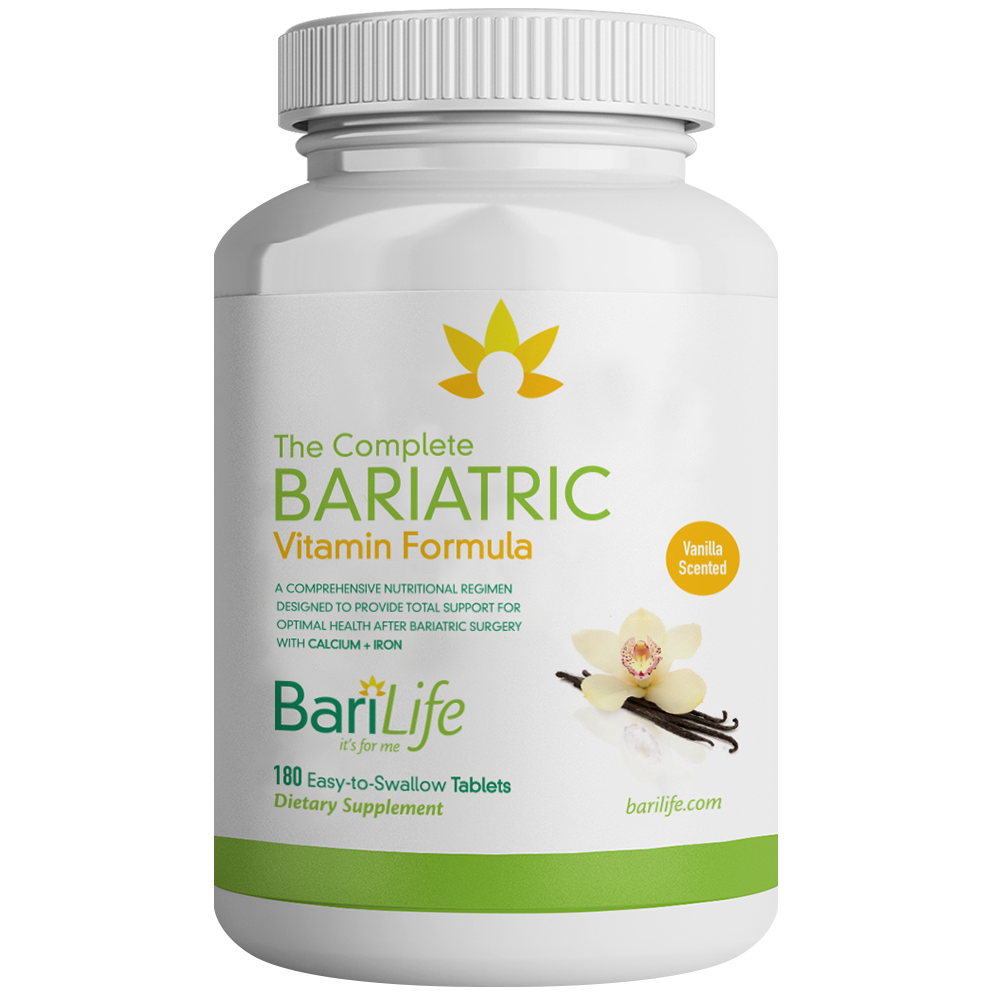
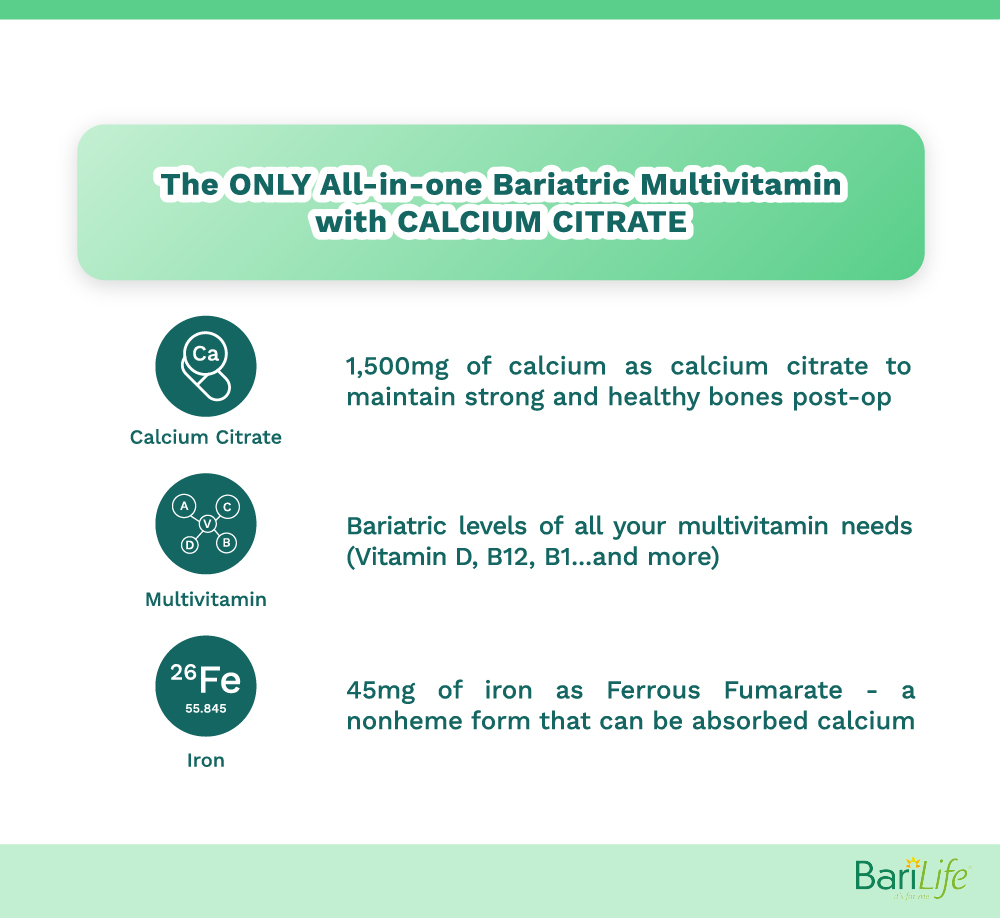
Bari Life has a wide selection of supplements that contain the important vitamins and minerals you need after gastric sleeve surgery. Their line of multivitamins helps fill in the gaps where your diet is lacking. Support your body in getting all the required vitamins and minerals after gastric sleeve surgery by taking a daily multivitamin.
Take away
With any surgery, there are specific guidelines to follow after having a gastric sleeve. By knowing what medications to avoid after gastric sleeve surgery, you are better prepared to support your health and prevent any complications after surgery.
As with any medical procedure, work closely with your doctor and talk about what medications are appropriate for your unique situation.



When you lose all the weight you still feel bad about yourself because you can’t get skin removal surgery so you still have low self esteem so where is the help the insurance pAy for for the surgery what about the after care are there programs to help pay for the surgery
This was a great reminder. I am 3.5 years out and this past year I have gained 10 lbs, total about 16 lbs back. I wished I had kept up with what I started. I added back sweets for a time, snacked between meals, drank during my meals, etc. Now I am eating more than I should. I eat a lot of protein bars, Quest, and now are addicted to them. I am worried that my stomach is stretched. Hoping I can reset on my own. I didn’t realize that I would need to diet the rest of my life. Dr. BOYCE was my surgeon and I remember him telling me in my first visit not to snack! I wished I had listened!